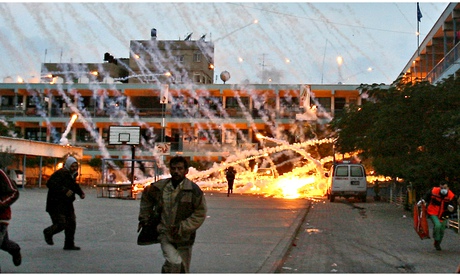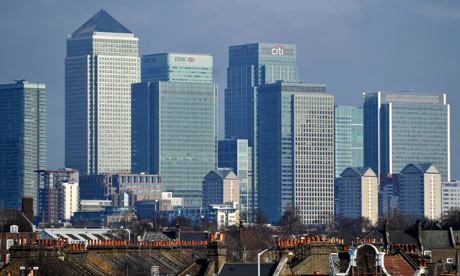I was as horrified as you to hear of 12 lives being lost in the armed assault on a Paris satirical weekly for their repeatedly sneering at the Prophet of Islam (PBUH) and running cartoons denigrating him and the religion he has brought to hundreds of millions of families the world over. That such horror at terrorism was not just my reaction as a non-Muslim to the Paris outrage, but widely shared by Muslims too was brought home to me by a statement issued by a collegium of Imams and preachers of Bahrain who said: "Violence and extremism have always been - and still are - the biggest enemies of Islam, and contravene its teachings, tolerance and genuine precepts. All countries should take unified stances against terrorism. We call for the need to devise a unified international strategy to combat its forms and manifestation everywhere."
That precisely reflects the position taken by the Dar-ul-Uloom. It precisely reflects my own personal position. To go by the Congress President's reaction, it also reflects my party's position: "The Congress President, Smt Sonia Gandhi, has condemned the cowardly and dastardly terror attack on Media in Paris. Shocked at the audacity of the gruesome act, Smt Gandhi said that extremism and intolerance will never be able to curb freedom of expression and will only result in perpetuation of violence."
What then is the controversy about? It is about my describing the incident as a "backlash" to the War on Terrorism. That is not a justification of terrorism. It is an explanation. The distinction is important. I condemn terrorism. I do not commend it. If, however, war is declared on terrorists, it is stupid to imagine that the terrorists will take it lying down; inevitably they will hit back - that is a consequence we have to be prepared for.
Charlie Hebdo, the satirical weekly, was so obviously on the hit list that it was virtually inviting a reaction week after week. The threat to the Editor was so palpable that he had been personally provided with just about the highest level of security that France could offer. Why the magazine's office was not protected with an adequate posse of armed security is being investigated. But it also reflects the mind-set that thinks the West can mount a war and get away with little or no loss to themselves. The West is so militarily powerful and so technologically superior that it is able to unleash an unequal war in which their resources in money and machines cannot be matched even remotely by those whom they are combating.
Therefore, terrorists resort to an asymmetrical response. They target non-combatants by way of avenging themselves on those whose war machines kill - daily - scores, hundreds, even thousands of the non-combatants in whose midst the terrorists live and shield themselves.
A dead innocent is a dead innocent. Terrorists deliberately target the innocent. The War on Terrorism does not target innocents. It kills them indiscriminately by way of what is delicately called "collateral damage". But the loved ones and the community are equally affected - whether the killing is deliberate or incidental. The rage is the same. The urge to revenge is the same. For, as Gandhi said - and I quoted him to the TV agency - "Violence begets violence".
The West is near perfecting the art of killing their enemies (plus "collateral damage") without risking their own lives. When eight American body bags returned from Somalia, Bill Clinton immediately called off the operation "Black Hawk Down". When eight Pathan bodies of helpless mothers, hapless children, and innocent by-standers lie in the midst of the carnage wrought by a Drone attack, the wailing families do not react differently. They seek justice, each in his or her own way. The Drone wins out because even if it is downed, as it is unmanned, no American family is left with a tear in its eye. When terrorists attack, they know they are going to be killed - or kill themselves. They take the vicious consequences of their vicious action. The Drone just flies away - to come back another day.
Till even the First World War, war was fought on the terrain of war - the battle-field. Those who died or got injured were soldiers.
Civilians only accidentally got in the way. That changed when the Germans started assassinating mayors of towns where snipers shot at German soldiers. It horrified the world and contributed more to Britain coming in against Germany than perhaps any other single action. Not even into the Thirties had men been desensitized to the atrocity of civilian beings killed in armed attack. Picasso earned eternal fame because his painting captured and symbolized the horror experienced by all civilized people at the aerial bombing of the Spanish village of Guernica.
But by the Second World War, these niceties were abandoned. The terror opened by the Nazis through their Blitzkrieg on England, followed by their merciless genocide of Jews in the East European countries they occupied, started the process of desensitizing the hitherto-unknown horror of innocents being mown to death.
Stalingrad finally dulled sensitivities to the point where Churchill could order the bombing of Dresden and kill more innocents in a single night than all the terrorist attacks since 9/11 and after.
Truman's atom bombing of Hiroshima and Nagasaki removed the final constraints on sparing non-combatants the terrible fate of the battle-field. Since then, it has been open house for those with the military means to do so.
I was posted as a young diplomat to Hanoi in the middle of the US-Vietnam war. Day after day, twice a day, US Air Force planes would pound the city without regard to civilian habitation or military target, shooting to death and severely injuring any living being - man, woman or child - they could fit into their sights. Uncounted millions died. Many were non-combatant civilians. A young British colleague said to me that American U-2s flying at such speed that they could cross the country in 10 minutes at a height of 60,000 feet could take a photograph of the saucer I held in my hand that would be more accurate than my naked eye could see. "How," he asked, "do you think these guys on bicycles will ever drive them out?" The bicyclists did; they won. But only after millions of civilians had been slaughtered.
I condemn what happened in Paris with all the strength in my voice. It was dreadful. But I regard all forms of terrorism, especially by armed force that takes the lives of non-combatants as equally - perhaps even more - terrible. That is why my heart bleeds when 1,500 Palestinians are killed in their homes by bombs rained on them from the skies because they have the temerity to ask for the right to return to their homeland. The Modi government had little or nothing to say about that outrage. It is this lack of balance in the BJP's approach to terrorism that fills me with dread and despair.
Most of us Indians, except the fringe lunatics of the BJP-RSS-Sangh Parivar, have learned millennia ago to live with diversity, indeed to celebrate our diversity, for out of it is forged our unity as a nation.
For the West, however, diversity is a totally new experience. They have been compelled for economic reasons to import millions of Third World labourers, and since an arc of Arab countries lies immediately south of France on the other littoral of the Mediterranean, most of France's imported labour comprises Muslims from the Maghreb. France wants them to become Frenchmen as if the Arabs had fostered 1789 and never been subjected to colonial rule. The Arab Muslims wish to remain themselves, notwithstanding their having emigrated to France for the same economic reasons that have led to France and other Western countries importing them in such large numbers. Hence, stupid measures like insisting that no Muslim schoolchild in France may wear the hijab that her sisters wear in their home countries will result in a backlash.



